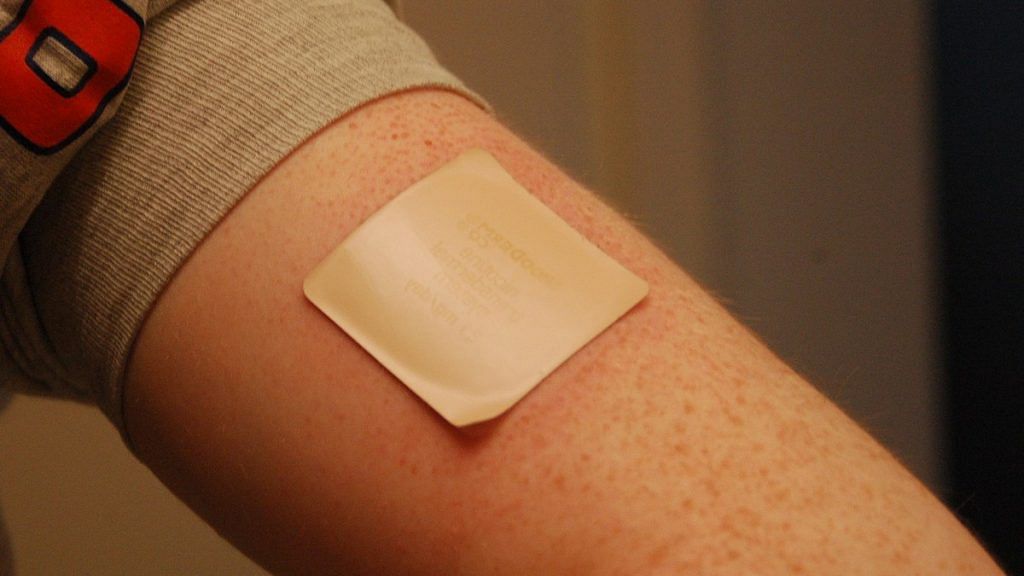New Delhi: French researchers are now preparing to launch nicotine patch trials on healthcare workers and patients, after a study in France found that smokers are less likely to be infected by the novel coronavirus than non-smokers.
The French study, published in April, found that the people who smoke are 80 per cent less likely to catch Covid-19 than non-smokers of the same age and sex. Its authors — Jean-Pierre Changeux, emeritus professor of neuroscience at France’s Pasteur Institute, and Zahir Amoura, professor at Paris’ Pitie-Salpetriere University Hospital — are conducting the follow-up human trials.
“Compared to the French general population, the Covid-19 population exhibited a significantly weaker current daily smoker rate by 80.3 per cent for outpatients and by 75.4 percent for inpatients,” it said.
“Thus, current smoking status appears to be a protective factor against the infection by SARS-CoV-2,” said the study, which found that only 5 per cent of 482 Covid-19 cases detected between 28 February and 9 April were daily smokers.
Overall, 25 per cent of the French population are daily smokers.
Also read: How smokers are getting by without cigarettes in Covid-19 lockdown (it’s helping many quit)
Theory and planned study
While nicotine does not attack the virus directly, it is likely to play an indirect role, involving a cell-membrane protein, ACE2, to which the virus plugs. Researchers suspect that nicotine binds to the same membrane, and so, prevents the virus from attaching itself.
Under the planned trial, nicotine patches will be tested on a sample group of 1,500 health professionals and 400 patients.
“They will be assessed to see if they catch the virus, and whether those wearing the nicotine patches are more resistant than their colleagues wearing the placebo patches,” Reuters reported.
Not an advertisement for smoking
The French study clearly warned against the use of nicotine for other purposes, and about the serious consequences of smoking on health.
“One should not forget that nicotine is a drug of abuse responsible for smoking addiction. Smoking has severe pathological consequences and remains a serious danger for health. Yet, under controlled settings, Nicotinic agents could provide an efficient treatment for an acute infection such as Covid-19,” it stated.
Following the study, France’s government has limited the sales of nicotine.
The World Health Organization (WHO) has also warned against smoking, saying it increases the susceptibility of transmission.
“Smokers are likely to be more vulnerable to Covid-19 as the act of smoking means that fingers (and possibly contaminated cigarettes) are in contact with lips, which increases the possibility of transmission of virus from hand to mouth. Smokers may also already have lung disease or reduced lung capacity, which would greatly increase risk of serious illness,” it said.
“Conditions that increase oxygen needs or reduce the ability of the body to use it properly will put patients at higher risk of serious lung conditions such as pneumonia,” the WHO said.
Contradictory IIT-Jodhpur study
A study conducted at the Indian Institute of Technology, Jodhpur, has contradicted the French study, finding that smokers “could be living on the edge of contracting Covid-19 infection”.
The IIT study, titled ‘Neurological insights of Covid-19 pandemic’, was published in an international journal of the American Chemical Society.
“The likeliness of Covid-19 patients to contract neurological infections can be exacerbated by secondary factors like smoking. According to a pilot study, smoking can enhance the chances of contracting Covid-19 based neuroinfections due to the functional interactions between human receptor and nicotinic receptor,” it had said.
Neither the French study nor the one from IIT-Jodhpur is peer-reviewed.
Also read: US FDA says smokers could have higher risk of catching coronavirus
